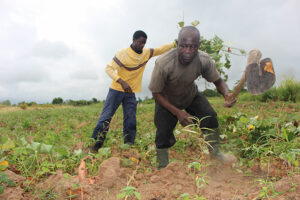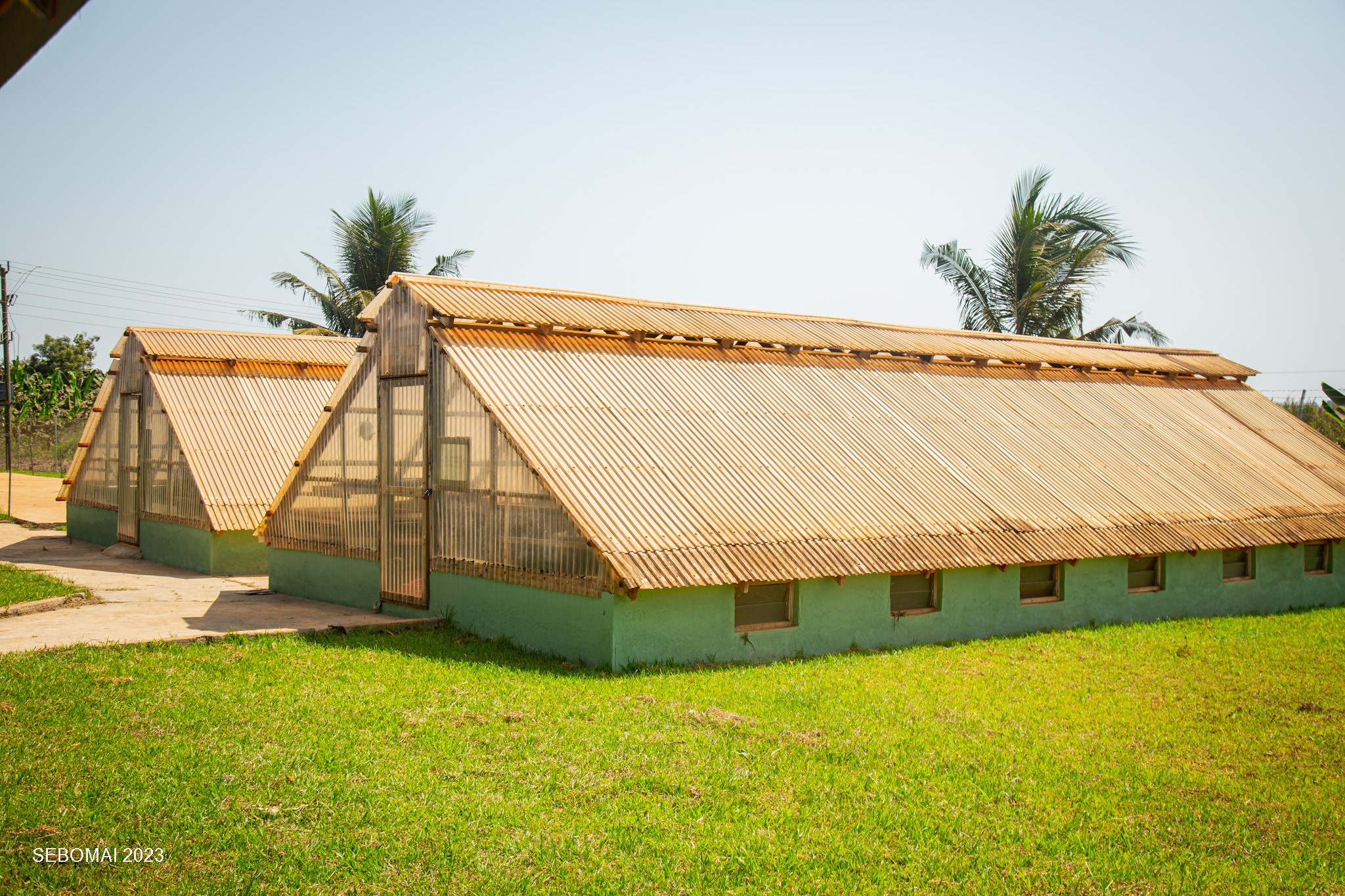

 Mr Samuel Robert Kwasari, a Technical Officer at Be the Help Foundation (BHF), Monday said small holder farmers on the continent can build resilience against impacts of climate crisis by practicing Regenerative Agriculture (RA).
Mr Samuel Robert Kwasari, a Technical Officer at Be the Help Foundation (BHF), Monday said small holder farmers on the continent can build resilience against impacts of climate crisis by practicing Regenerative Agriculture (RA).
He described RA as a holistic farming systems that, improve water and air quality, enhance ecosystem biodiversity, produce nutrient-dense food, and store carbon to help mitigate the effects of climate change.
Mr Kwasari who was speaking at a regional media engagement on Agro-ecology and climate justice event, organised by ActionAid Nigeria explained that RA involves community-based food production systems, that allow communities to have access to fresh and nutritious foods especially at underserved areas.
The engagement under the the Strategic Partnerships for Agro-ecology and Climate Justice in West Africa (SPAC-West Africa) project sought to enhance the knowledge of climate change and agriculture reporters drawn from the continent on agro-ecology and climate justice.
Already the 2024 seasonal forecasts of Agro-hydro-climatic characteristics of the major rainy season in the Gulf of Guinea Countries released last week also recommended to farmers to adopt RA.
It predicted that the major rainy season in the southern parts of the Gulf of Guinea countries will witness a rainfall deficit in the coastal part of Côte d’Ivoire Ghana and Liberia, Togo, Benin, and Nigeria.
Mr Kwasari said RA was one of the reliable method of farming that could contribute to food security and reduce poverty in rural areas.
“These systems are focusing on bringing the small holder farmers out of dependency from seed, fertilizer and pesticide producers and reduce input costs to the minimum. Every input is produced on farm. Invest once and harvest throughout the year and lifelong,” he said.
Mr Azubike Nwokoye, the ActionAid Nigeria Deputy Country Director and Food and Agriculture Programme Manager, said farmers ability to embrace RA would help address one of the major challenges, thus the use of agro inputs like chemical fertilizer.
He said RA used nature-based solution to addressing degraded soils and promote sustainability.
Mr Donald Ikenna, Program Coordinator, Heinrich Boell Foundation Nigeria said that the burden of the negative effects of agriculture input like pesticides was felt most by the poor and vulnerable communities in countries that had less stringent enforcement mechanisms.
‘WHO estimated that 1-5 million cases of pesticide poisoning occur every year among agricultural workers and result in 20,000 fatalities, most of these in developing nations.
According to him pesticide imports into Africa over the last five years had increased significantly.
“In West Afrcia alone pesticide imports have doubled in the last five years from 218,948 tonnes in 2015 to 437,930 tonnes in 2020.”
“Nigeria’s import alone is 147,446 tonnes which exceeded total imports of Southern Africa (87,403 tonnes) and North Africa (109, 561 tonnes),” he added.
Despite the ever increasing pesticide use, the prevalence of food insecurity and malnourishment, he said was not improving.
Source: GNA
The post Farmers in Africa can build resilience against climate through regenerative agriculture – Kwasari appeared first on Ghana Business News.
Read Full Story



















Facebook
Twitter
Pinterest
Instagram
Google+
YouTube
LinkedIn
RSS